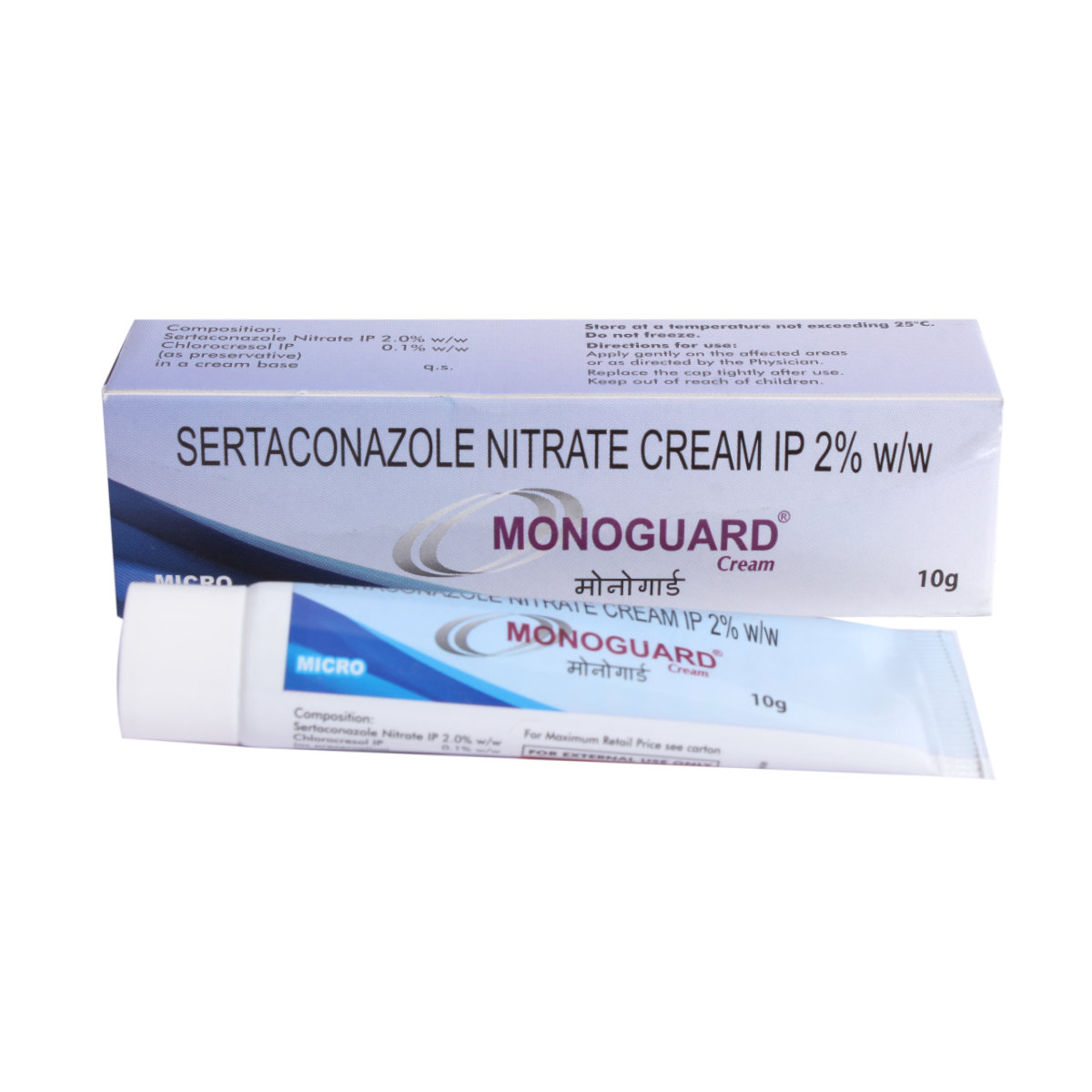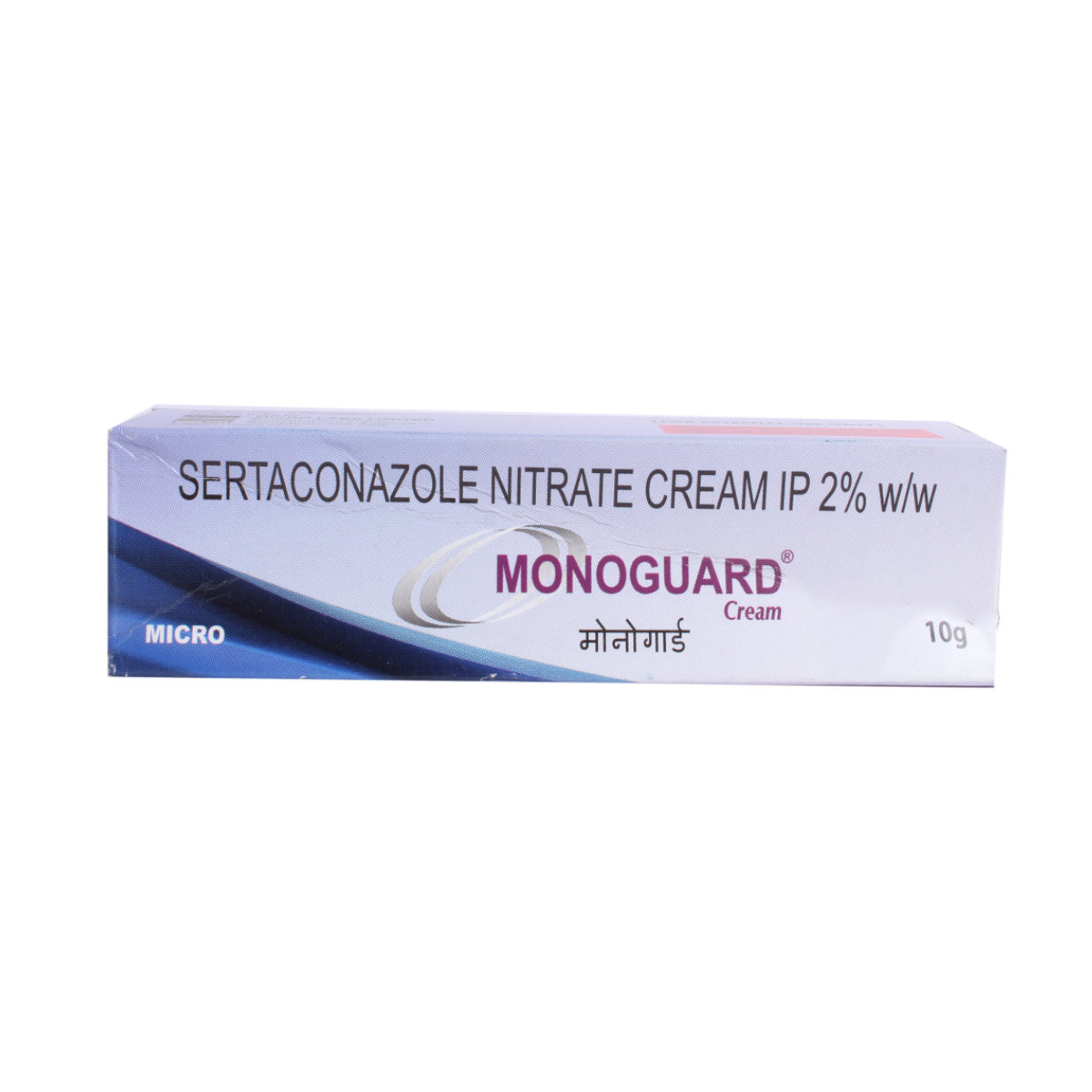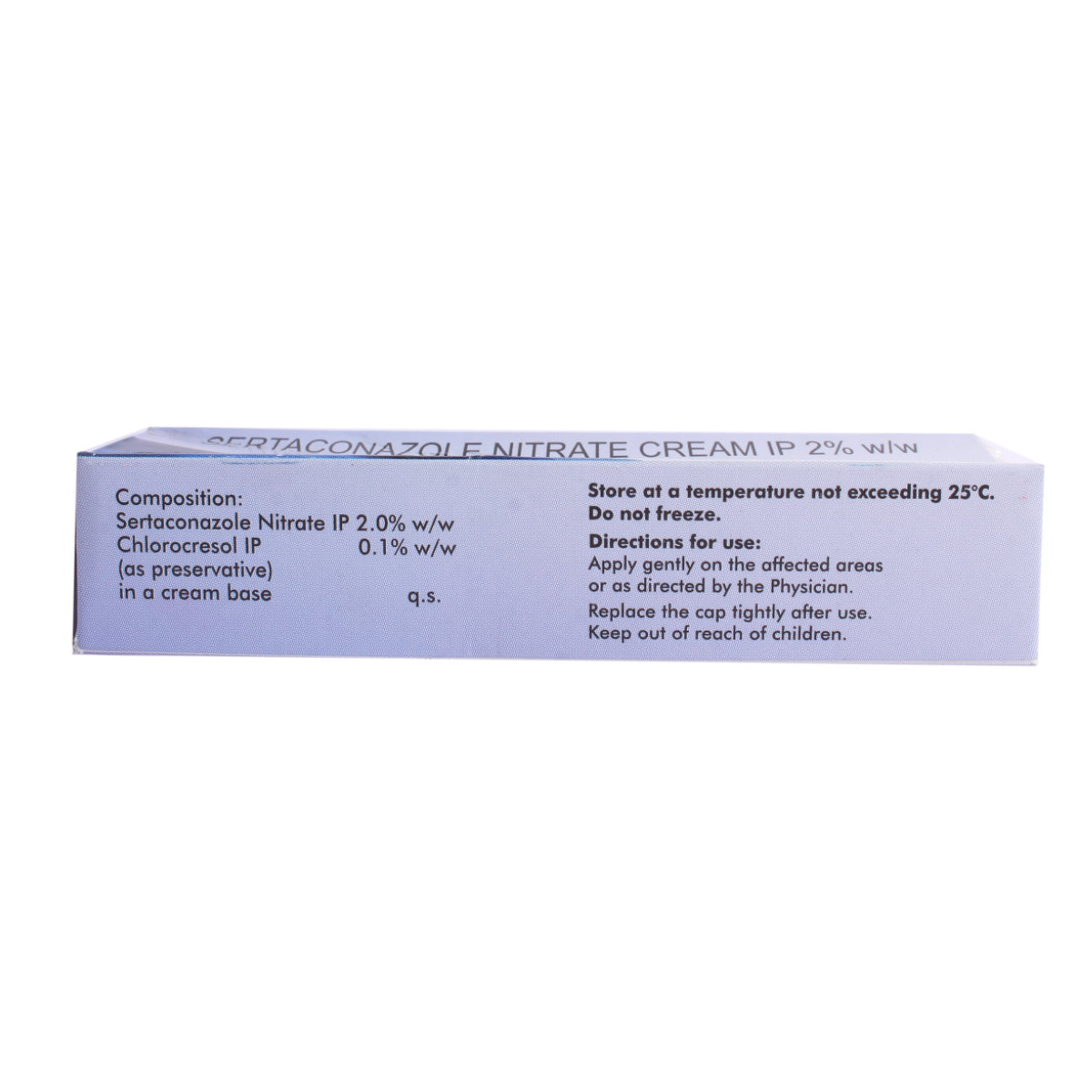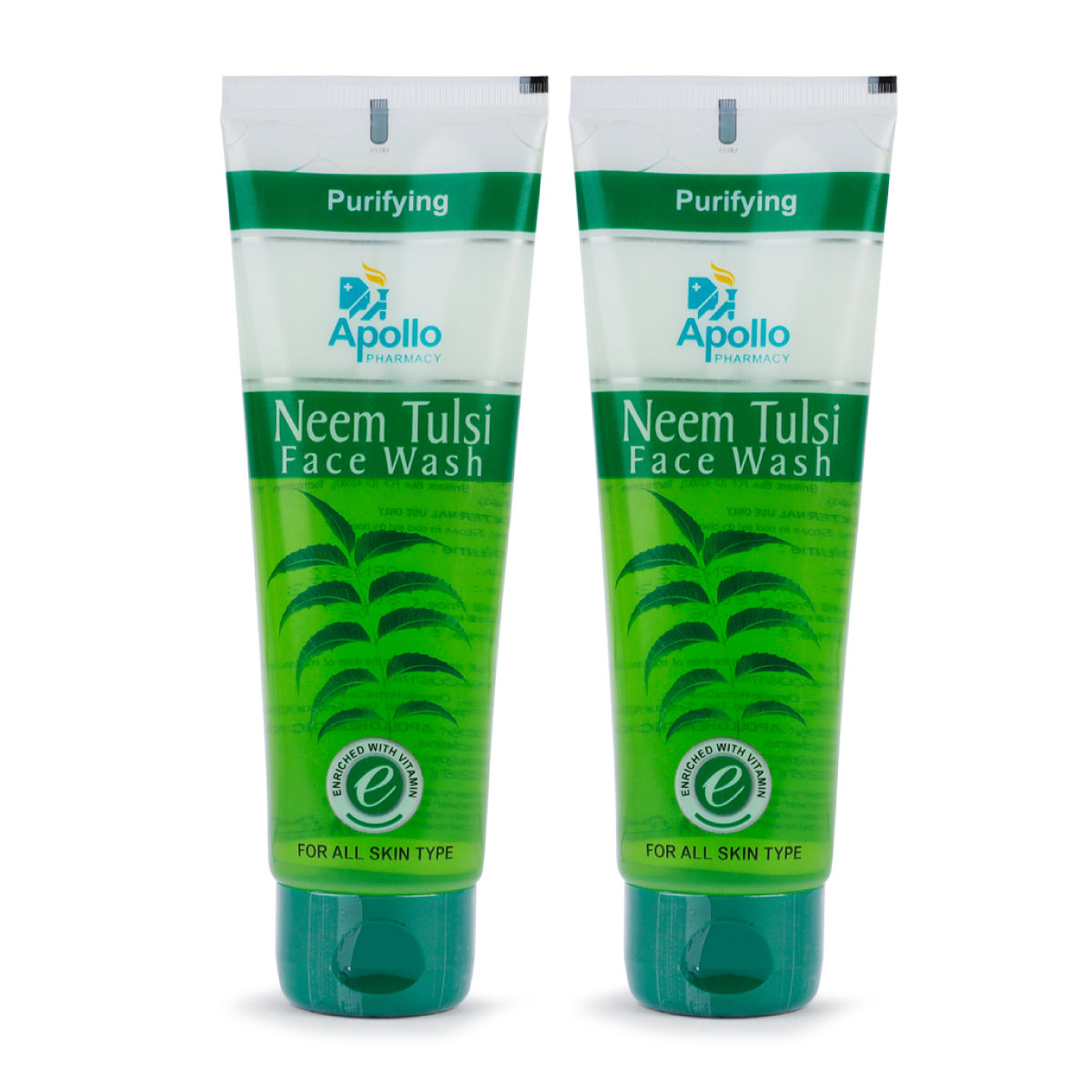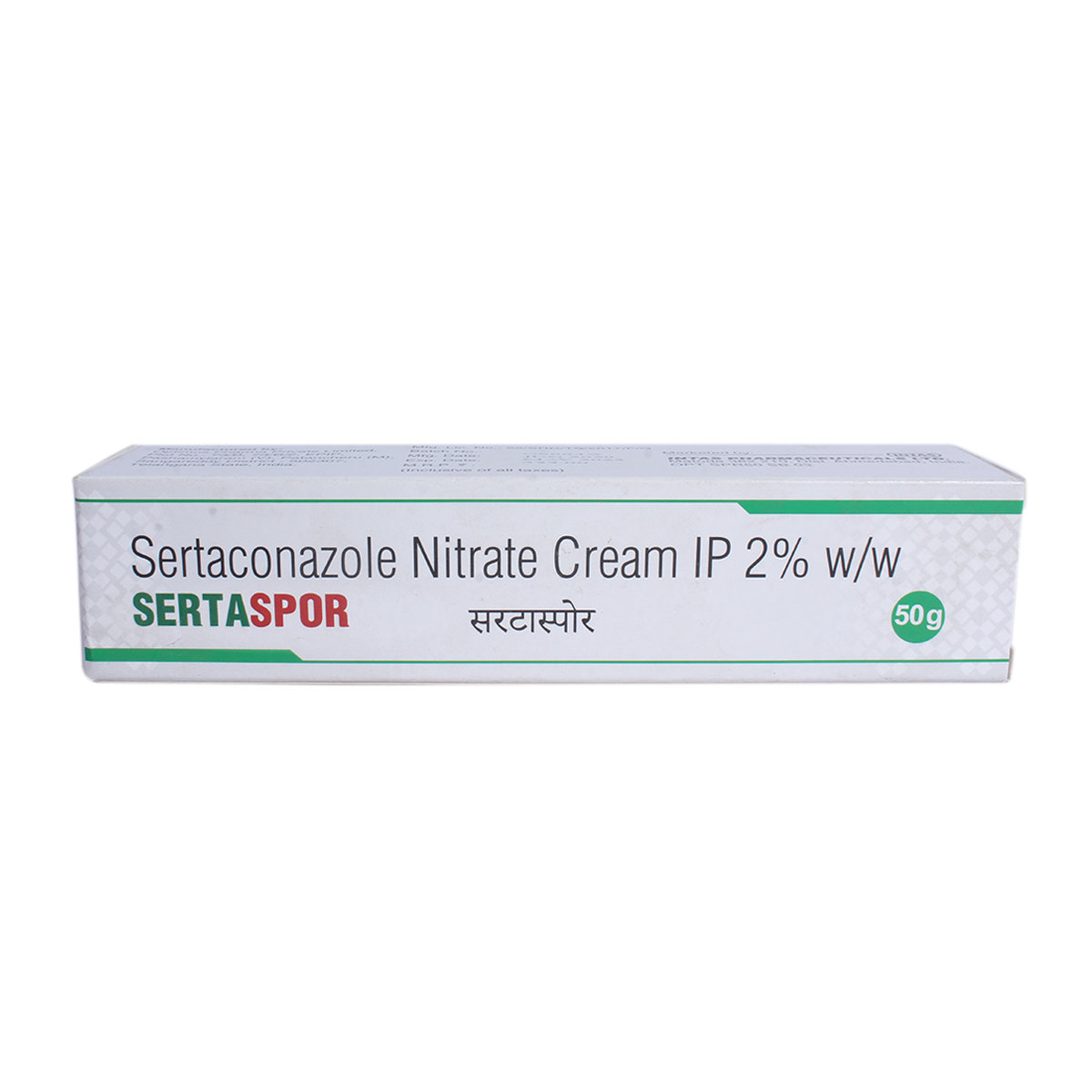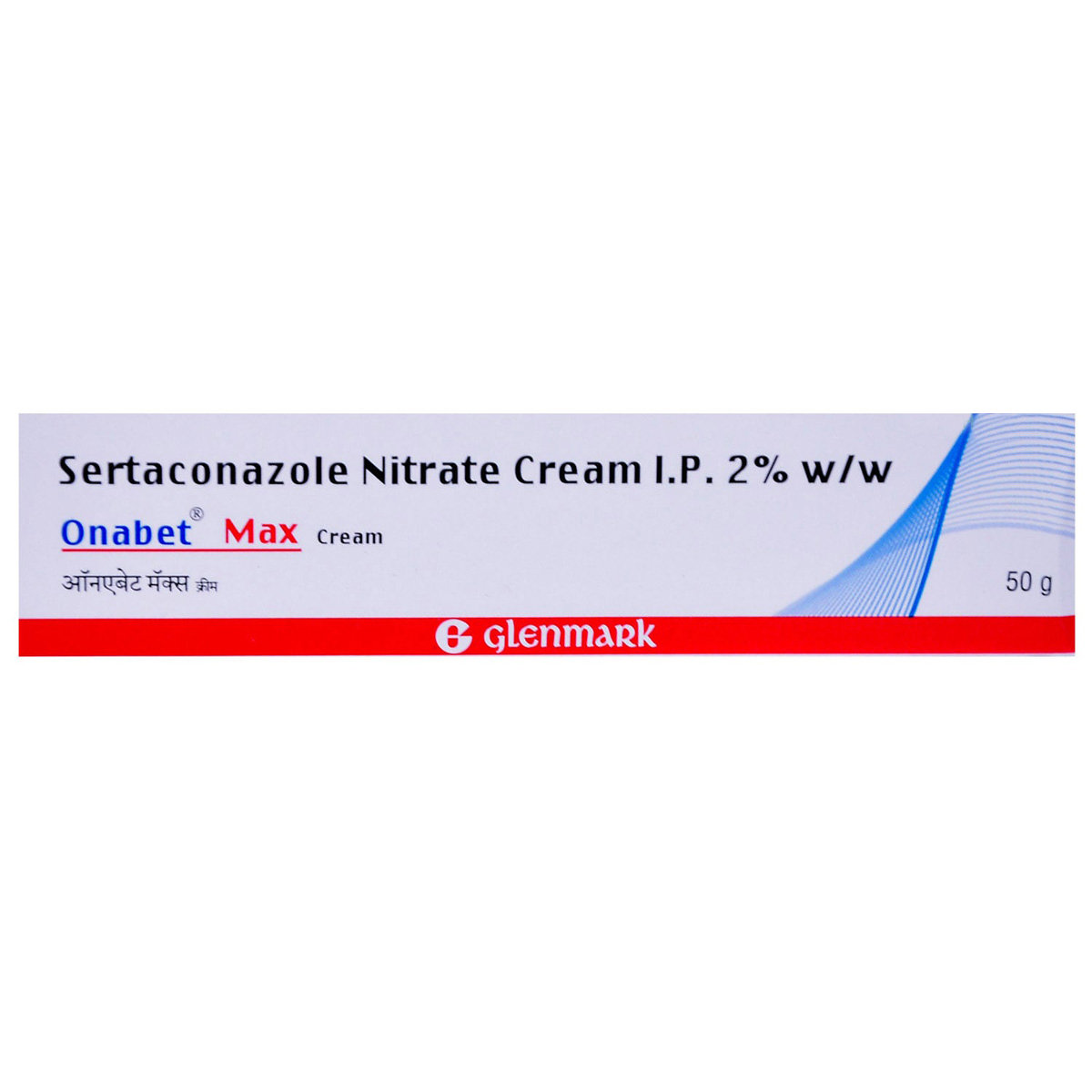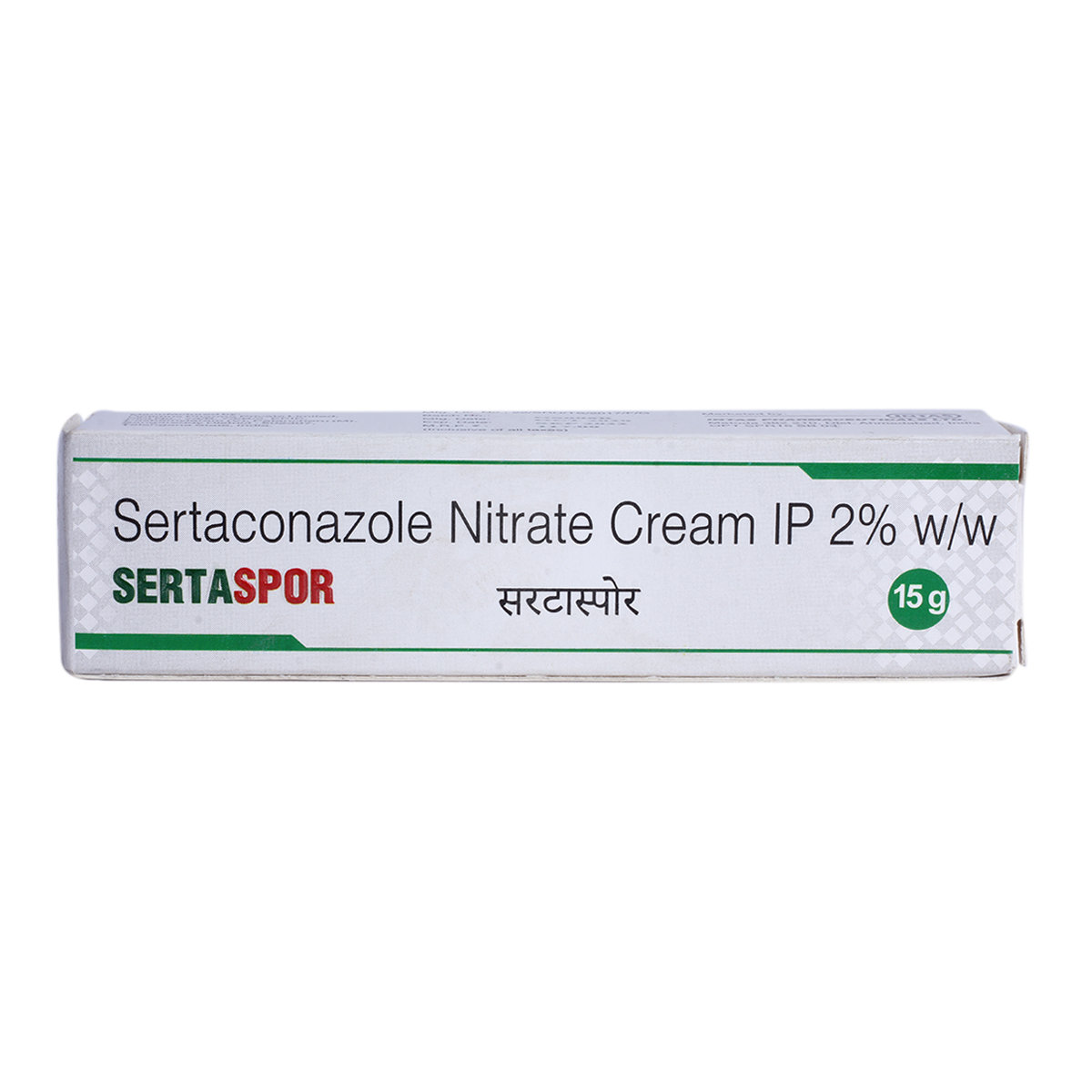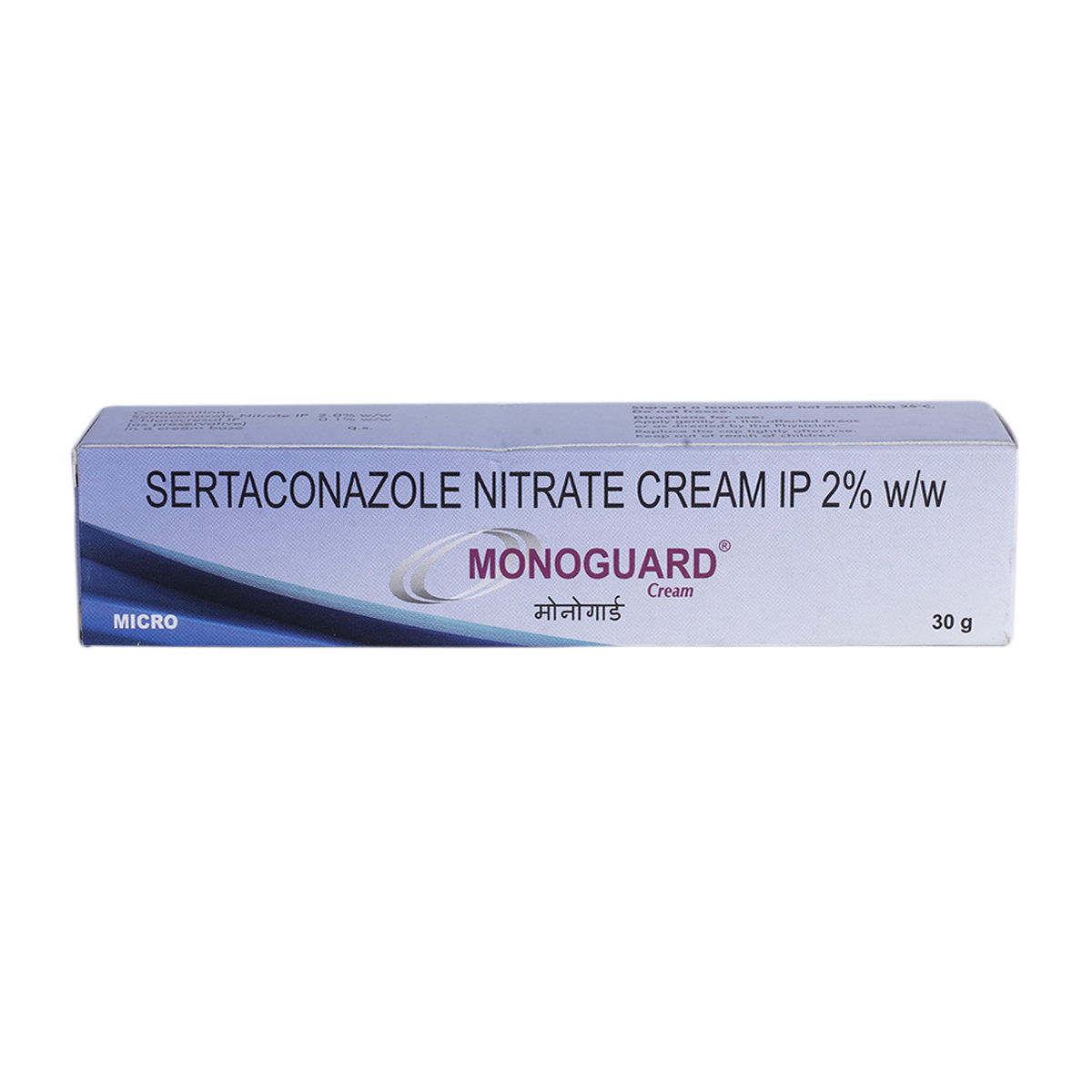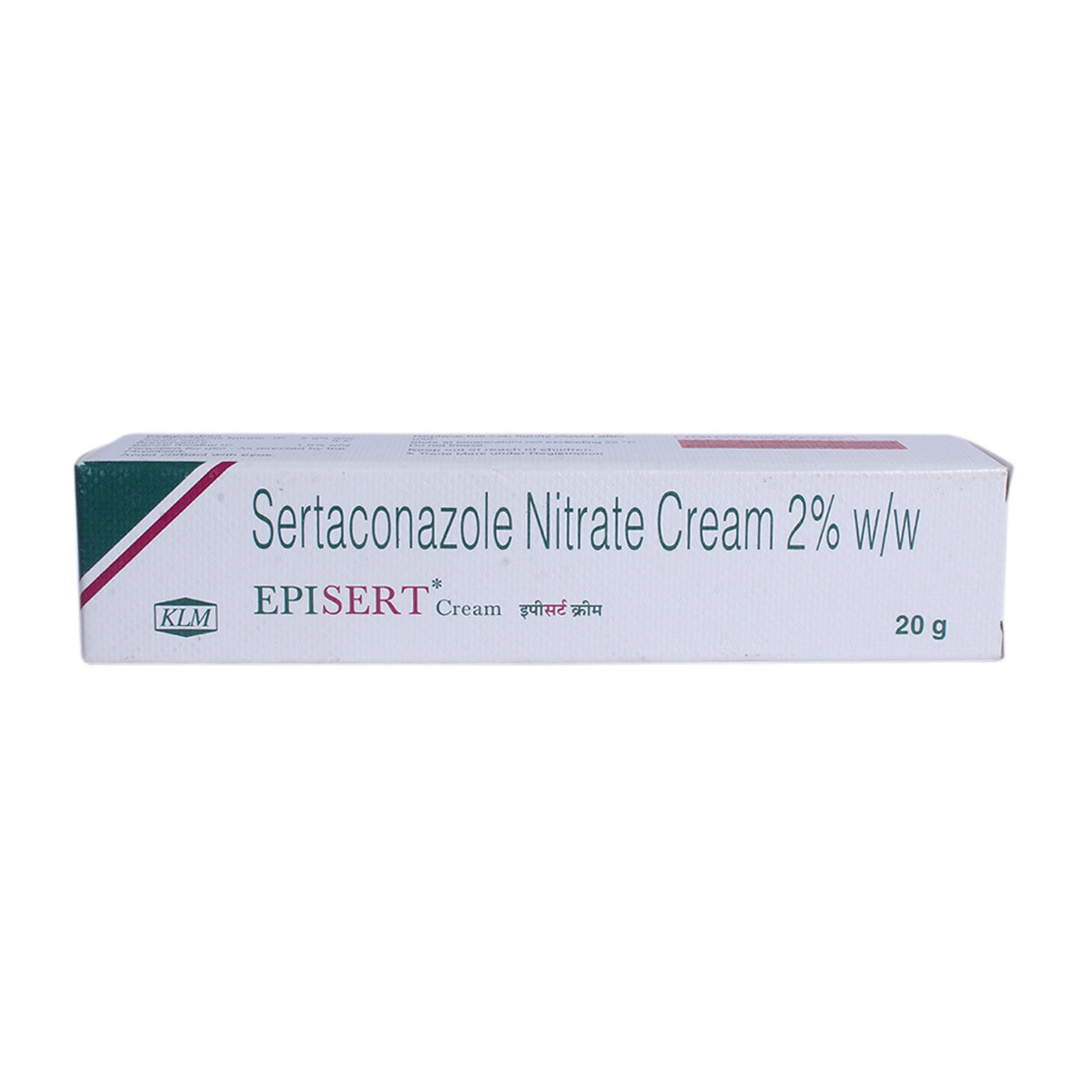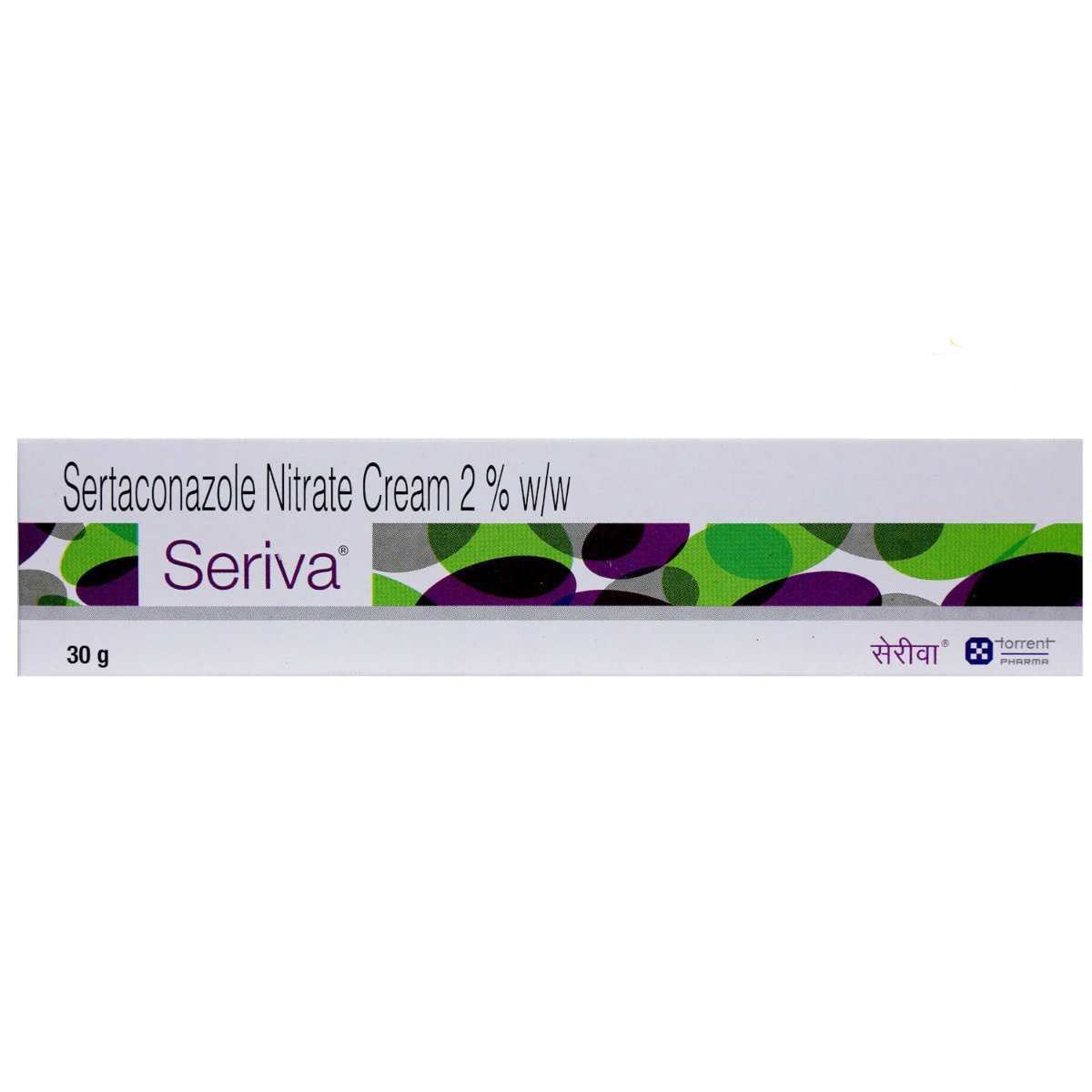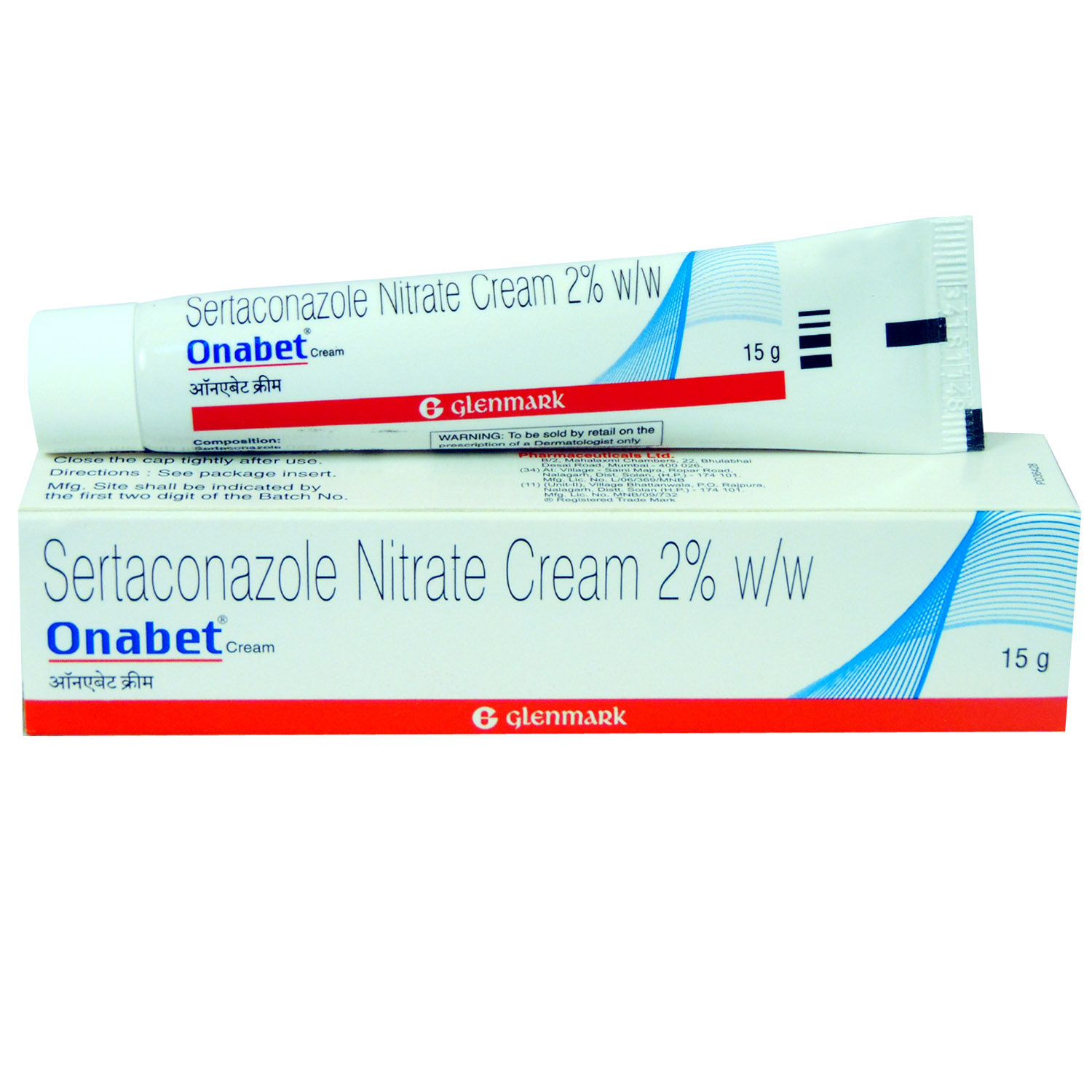Monoguard Cream 10 gm
MRP ₹150
(Inclusive of all Taxes)
₹22.5 Cashback (15%)
Selected Pack Size:10 gm
10 gm ₹135
(₹13.5 per gm)
In Stock
30 gm ₹302
(₹10.07 per gm)
In Stock
About Monoguard Cream
Monoguard Cream belongs to the class of medications known as imidazoles (azole antifungal), primarily used for the topical treatment of interdigital tinea pedis (Athlete's foot) in immunocompetent patients 12 years of age and older, caused by: Trichophyton rubrum, Epidermophyton floccosum and Trichophyton mentagrophytes. Besides this, Monoguard Cream is also used to treat other fungal skin infections. An athlete's foot is a fungal illness primarily affects the area between the toes. A fungal infection, commonly known as mycosis, is a skin condition caused by a fungus.
Monoguard Cream contains imidazole antifungal sertaconazole nitrate. Monoguard Cream works by destroying the fungus that causes the infection. Monoguard Cream destroys the fungi by allowing the holes to open in the cell membrane and the components to leak out. This kills the fungus and prevents the infection.
Monoguard Cream should only be used on the skin, and if it gets into your eyes, mouth, or nose, rinse with water. Monoguard Cream may cause burning, itching, redness, stinging, and dryness on your skin where it is applied in some situations. The majority of Monoguard Cream's adverse outcomes fade over time without the need for medical intervention. If any adverse effects worsen or continue, contact your doctor right away.
Tell your doctor if you are (or your child) allergic to sertaconazole or any other medicines. It is unknown whether Monoguard Cream harms the baby or passes into breast milk in pregnancy and breastfeeding state. Contacting a doctor before using a Monoguard Cream during pregnancy and while breastfeeding is recommended. Keep your doctor informed about your health condition and all the medicines you take before taking the Monoguard Cream to rule out any side effects.
Country of origin
Manufacturer/Marketer address
Online payment accepted

secured payment

india's most trusted pharmacy

genuine products
Composition :
Manufacturer/Marketer :
Consume Type :
Expires on or after :
Return Policy :
Provide Delivery Location
About Monoguard Cream
Monoguard Cream belongs to the class of medications known as imidazoles (azole antifungal), primarily used for the topical treatment of interdigital tinea pedis (Athlete's foot) in immunocompetent patients 12 years of age and older, caused by: Trichophyton rubrum, Epidermophyton floccosum and Trichophyton mentagrophytes. Besides this, Monoguard Cream is also used to treat other fungal skin infections. An athlete's foot is a fungal illness primarily affects the area between the toes. A fungal infection, commonly known as mycosis, is a skin condition caused by a fungus.
Monoguard Cream contains imidazole antifungal sertaconazole nitrate. Monoguard Cream works by destroying the fungus that causes the infection. Monoguard Cream destroys the fungi by allowing the holes to open in the cell membrane and the components to leak out. This kills the fungus and prevents the infection.
Monoguard Cream should only be used on the skin, and if it gets into your eyes, mouth, or nose, rinse with water. Monoguard Cream may cause burning, itching, redness, stinging, and dryness on your skin where it is applied in some situations. The majority of Monoguard Cream's adverse outcomes fade over time without the need for medical intervention. If any adverse effects worsen or continue, contact your doctor right away.
Tell your doctor if you are (or your child) allergic to sertaconazole or any other medicines. It is unknown whether Monoguard Cream harms the baby or passes into breast milk in pregnancy and breastfeeding state. Contacting a doctor before using a Monoguard Cream during pregnancy and while breastfeeding is recommended. Keep your doctor informed about your health condition and all the medicines you take before taking the Monoguard Cream to rule out any side effects.
Uses of Monoguard Cream
Key Benefits
Monoguard Cream is widely used to treat various skin fungal infections, especially Interdigital tinea pedis or Athlete's foot, due to specific fungi (e.g. Trichophyton rubrum, Epidermophyton floccosum and Trichophyton mentagrophytes) by destroying its cell membrane.
Directions for Use
Storage
Side Effects of Monoguard Cream
- Contact dermatitis (Skin rash)
- Dry skin
- Burning skin
- Application site skin tenderness
Drug Warnings
Do not use the Monoguard Cream in your eyes, mouth, or vagina. If Monoguard Cream accidentally comes in contact with these areas, rinse with water thoroughly. Tell your doctor if you are (or your child) allergic to sertaconazole or any other medicines. It is unknown whether Monoguard Cream harms the baby or passes into breast milk in pregnancy and breastfeeding state. Contacting a doctor before using a Monoguard Cream during pregnancy and while breastfeeding is recommended. Keep your doctor informed about your health condition and all the medicines you take before taking the Monoguard Cream to rule out any side effects. If irritation or sensitivity develops with the use of Monoguard Cream, treatment should be discontinued, and appropriate therapy instituted as recommended by the physician.
Drug Interactions
Drug-Drug Interaction: No drug interactions have been identified with Monoguard Cream..
Drug-Food Interaction: No food interactions have been identified with Monoguard Cream.
Drug-Disease Interaction: No interactions have been identified with Monoguard Cream.
Habit Forming
Diet & Lifestyle Advise
- Regularly change your socks and wash your feet. Avoid shoes that make your feet sweaty and hot.
- Don't walk barefoot in wet places such as changing rooms and gym showers to prevent fungal infections.
- Do not scratch the affected skin area as it can spread the infection to other body parts.
- Avoid sharing towels, combs, bedsheets, shoes or socks with others.
- Wash your bed sheets and towels regularly.
Special Advise
- Avoid contact of Monoguard Cream with nose, mouth or eyes. If Monoguard Cream accidentally comes in contact with these areas, rinse with water thoroughly.
Disease/Condition Glossary
Fungal skin infections: A fungal infection of the skin occurs when the fungus invades the skin tissue. Fungal infections can be contagious and spread from one person to another. Symptoms include skin irritation, scaly skin, redness, itching, scaly or flaky patches, and swelling. The most common type of fungal infections are ringworm, athlete's foot, jock itch, athlete's foot, and yeast infections.
Athlete's foot: A fungal illness primarily affects the area between the toes. Athletes' foot is typically seen in those whose feet have become extremely sweaty while confined within tight-fitting shoes. A scaly rash with itching, stinging, and burning are common symptoms.
FAQs
Disclaimer
Alcohol
Safe if prescribed
No reported interaction with Monoguard Cream. But, It is best to avoid alcohol while medication.
Pregnancy
Consult your doctor
Monoguard Cream is classified as FDA pregnancy category C. There are no adequate or well-controlled studies on pregnant women. Please consult your doctor for advice before using Monoguard Cream.
Breast Feeding
Consult your doctor
Consult your doctor, and there is no substantial research yet on the use of Monoguard Cream in breastfeeding/nursing mothers.
Driving
Safe if prescribed
Monoguard Cream has no or negligible influence on the ability to drive or use machines.
Liver
Consult your doctor
Monoguard Cream does not have any reported interaction hence, in case you experience any difficulty discuss with your doctor.
Kidney
Consult your doctor
Monoguard Cream does not have any reported interaction hence, in case you experience any difficulty discuss with your doctor.
Children
Safe if prescribed
The safety and efficacy of Monoguard Cream in children has not been established. Monoguard Cream is not recommended in children.
Author Details
We provide you with authentic, trustworthy and relevant information
Reference
- https://www.accessdata.fda.gov/drugsatfda_docs/label/2014/021385s005lbl.pdf
- https://www.accessdata.fda.gov/drugsatfda_docs/label/2003/21385_Ertaczo_lbl.pdf
- https://dailymed.nlm.nih.gov/dailymed/lookup.cfm?setid=821073f7-33f6-464d-baed-f66d97987d6d
- https://www.drugs.com/drug-interactions/sertaconazole-topical.html
Uses of Monoguard Cream
Key Benefits
Monoguard Cream is widely used to treat various skin fungal infections, especially Interdigital tinea pedis or Athlete's foot, due to specific fungi (e.g. Trichophyton rubrum, Epidermophyton floccosum and Trichophyton mentagrophytes) by destroying its cell membrane.
Directions for Use
Storage
Drug Warnings
Do not use the Monoguard Cream in your eyes, mouth, or vagina. If Monoguard Cream accidentally comes in contact with these areas, rinse with water thoroughly. Tell your doctor if you are (or your child) allergic to sertaconazole or any other medicines. It is unknown whether Monoguard Cream harms the baby or passes into breast milk in pregnancy and breastfeeding state. Contacting a doctor before using a Monoguard Cream during pregnancy and while breastfeeding is recommended. Keep your doctor informed about your health condition and all the medicines you take before taking the Monoguard Cream to rule out any side effects. If irritation or sensitivity develops with the use of Monoguard Cream, treatment should be discontinued, and appropriate therapy instituted as recommended by the physician.
Therapeutic Class
Drug-Drug Interactions
Drug-Drug Interactions
Login/Sign Up
Diet & Lifestyle Advise
- Regularly change your socks and wash your feet. Avoid shoes that make your feet sweaty and hot.
- Don't walk barefoot in wet places such as changing rooms and gym showers to prevent fungal infections.
- Do not scratch the affected skin area as it can spread the infection to other body parts.
- Avoid sharing towels, combs, bedsheets, shoes or socks with others.
- Wash your bed sheets and towels regularly.
Habit Forming
Side Effects of Monoguard Cream
- Contact dermatitis (Skin rash)
- Dry skin
- Burning skin
- Application site skin tenderness
Special Advise
- Avoid contact of Monoguard Cream with nose, mouth or eyes. If Monoguard Cream accidentally comes in contact with these areas, rinse with water thoroughly.
Disease/Condition Glossary
Fungal skin infections: A fungal infection of the skin occurs when the fungus invades the skin tissue. Fungal infections can be contagious and spread from one person to another. Symptoms include skin irritation, scaly skin, redness, itching, scaly or flaky patches, and swelling. The most common type of fungal infections are ringworm, athlete's foot, jock itch, athlete's foot, and yeast infections.
Athlete's foot: A fungal illness primarily affects the area between the toes. Athletes' foot is typically seen in those whose feet have become extremely sweaty while confined within tight-fitting shoes. A scaly rash with itching, stinging, and burning are common symptoms.
All Substitutes & Brand Comparisons
RX
Out of StockSetaher 2% Cream 100 gm
Yaher Pharma
₹650
(₹5.85/ 1gm)
56% CHEAPERRX
Setaher 2% Cream 50 gm
Yaher Pharma
₹295
(₹5.9/ 1gm)
56% CHEAPERRX
Sertaspor Cream 50 gm
Intas Pharmaceuticals Ltd
₹374
(₹6.73/ 1gm)
50% CHEAPER

Have a query?


